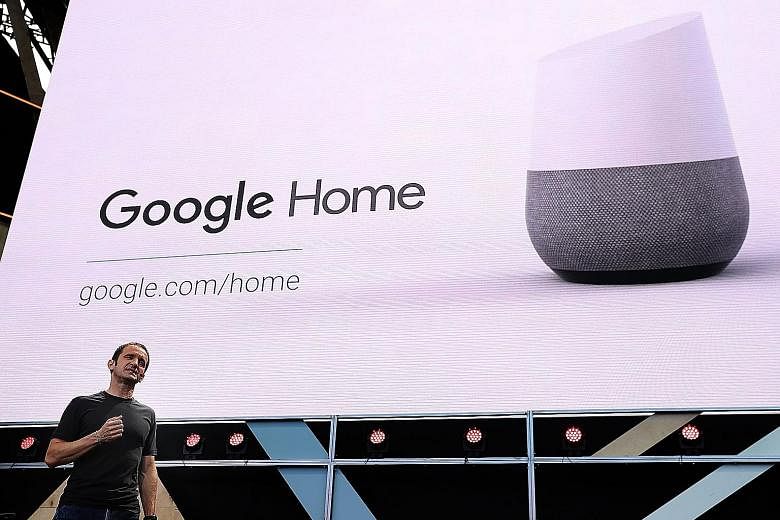Tech giant Google is making inroads into smart homes with its first home assistant device, which can pick up voice commands and intelligently perform actions based on context and previous instructions.
The device, Google Home, was one of the new products announced at this year's Google I/O (Input/Output) developer conference, which is in its 10th year and held for the first time at the Shoreline Amphitheatre in Silicon Valley.
Slated to be released later this year, Google Home is a cylinder the size of a small vase, with a base that doubles as a speaker. Users can send it voice commands to perform searches, make dinner reservations or book them an Uber ride.
Google chief executive Sundar Pichai said at the three-day event on Wednesday: "We want users to have an ongoing, two-way dialogue with Google, and to help get things done in the real world."
Google Home is a direct answer to tech rival Amazon's smart home assistant, the Echo, which was released in 2014 and the first smart home assistant with a comprehensive voice command range.
Google Home is powered by a software called Google Assistant, which allows users to have a natural conversation with their mobile devices or Google Home device, based on the software's combination of machine learning, voice recognition and online search. For example, users can ask "What movies are showing tonight?" and Google Home will bring up recommended movies playing in nearby theatres, before asking if the user would like to buy tickets and buying them if the user said "yes". "We think of this assistant as an ambient experience that extends across devices," said Mr Pichai. "It'll be on their phones, the devices they wear, in their cars, and in their homes."
Google also announced a messaging app called Allo in a space dominated by the likes of WhatsApp. It features a smart reply feature which gives users reply suggestions based on messages received, and a whisper or shout function that allows users to tailor the size of the messages to convey how emotional they are.
Also announced was a video-calling app called Duo, which allows users to see a live-stream video preview of the caller even before they pick up the call. When they answer, the app enters seamlessly from the video preview into a video call. Both Allo and Duo will be released for Android and iOS later this year.
Google's latest mobile operating system, Android N, will be equipped with VR,which allows users to immerse themselves more fully in VR games or videos. Their VR platform, called Daydream, will include a VR headset and a controller.

